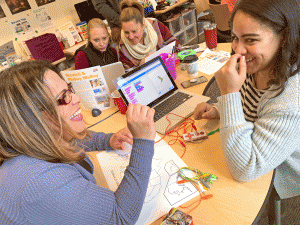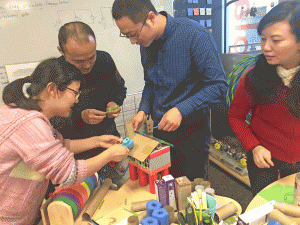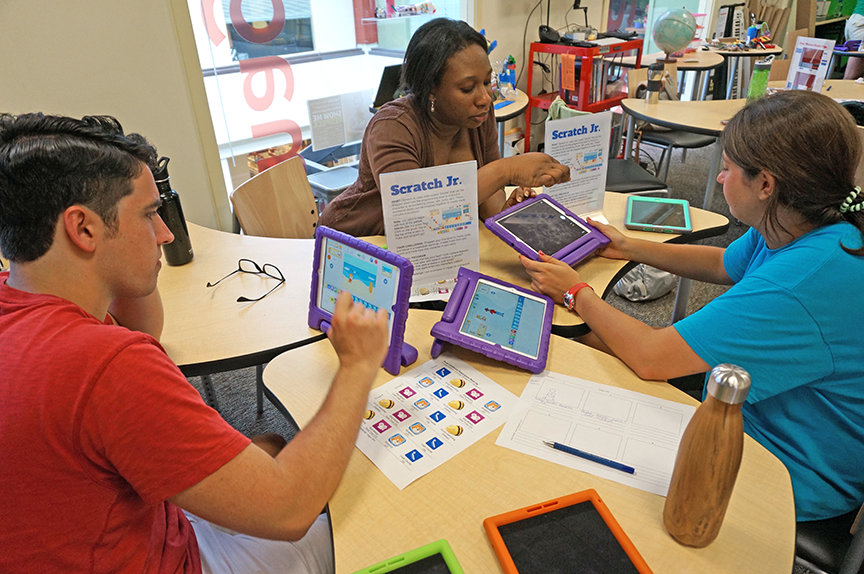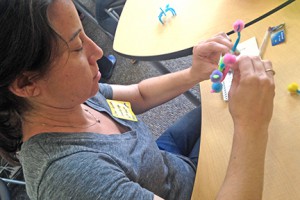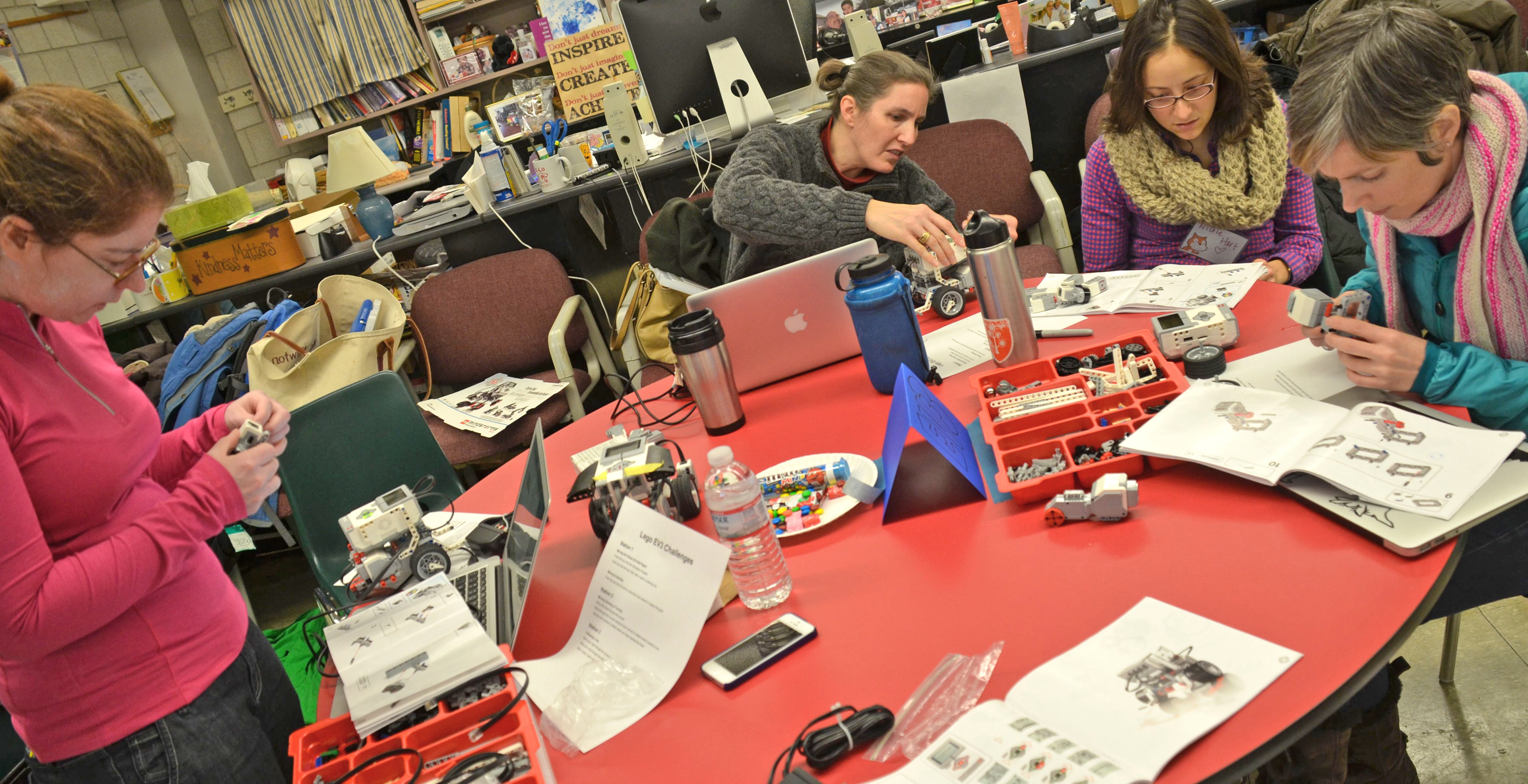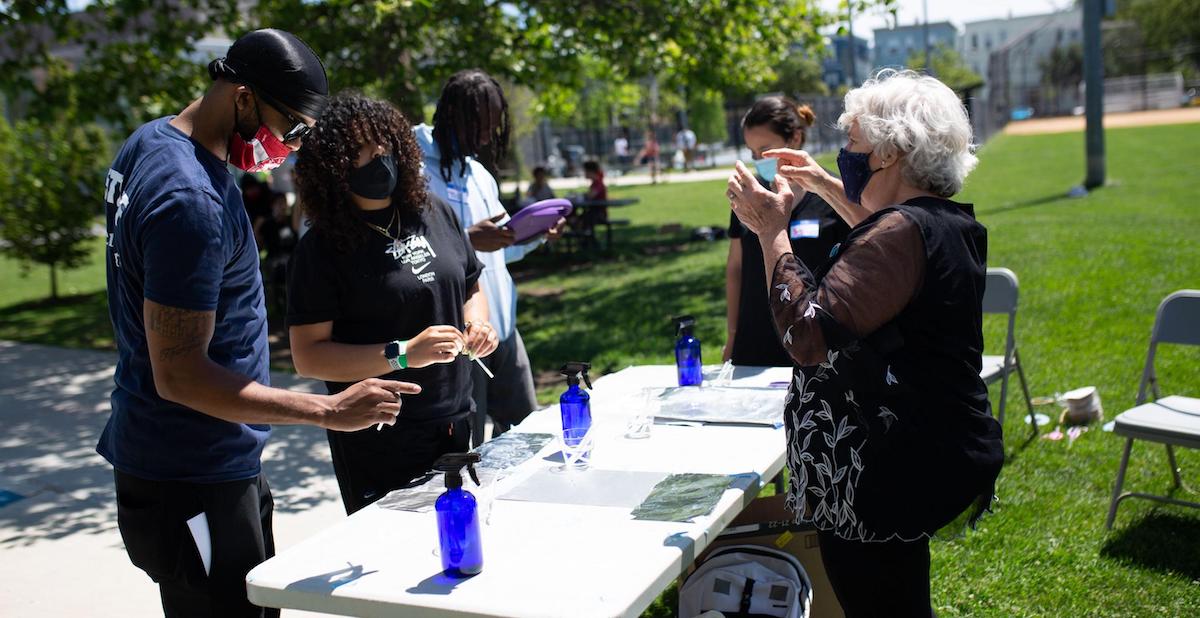
In addition to the summer 2021 Art, A.I. & Robotics course at Somerville High School, the Lesley STEAM team worked with Cambridge Youth Programs or CYP staff on an alternate reality game or ARG. Most educational ARGs consist of scenarios that lead participants to collaboratively solve puzzles and accomplish activities. LSTEAM used this social learning format as a professional development opportunity for CYP.
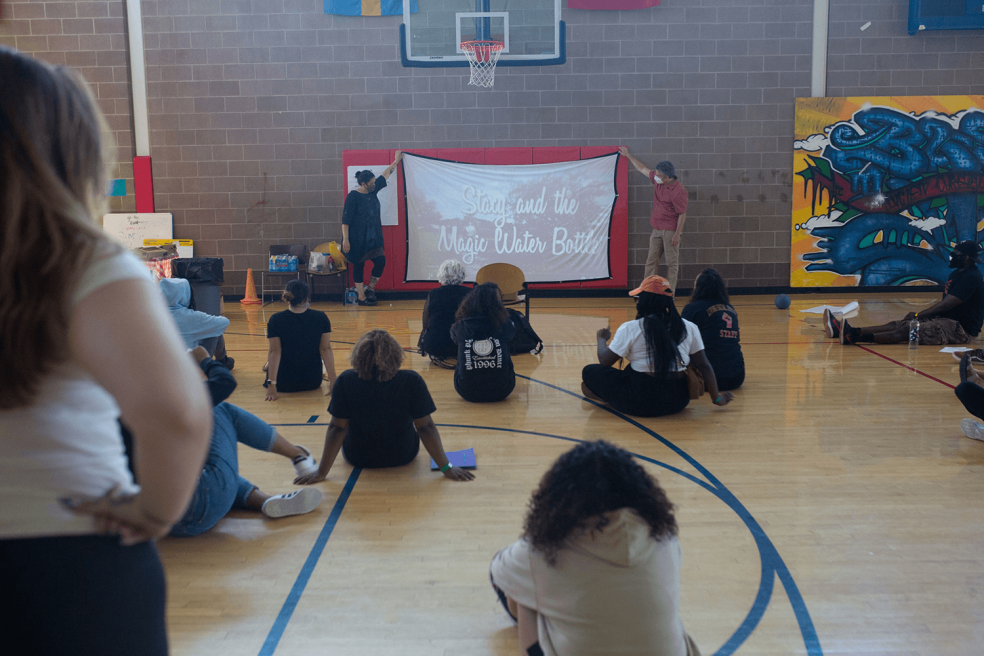
One of the first challenges that CYP staff had to address as part of their summer training was how to help ‘Stacy’ find a magical water bottle with healing powers. Stacy was a fictional character in a short video created by Tessa Johnson that provided clues to tasks CYP staff would later accomplish to play the ARG.
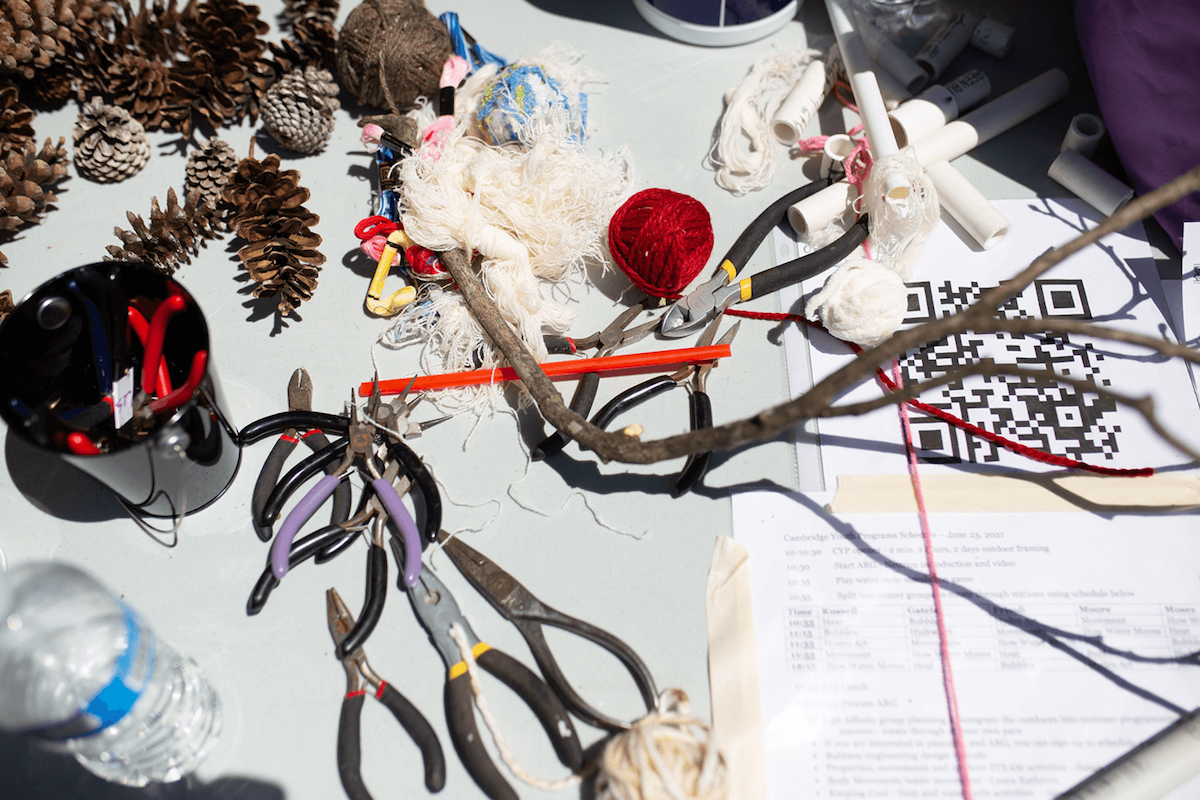
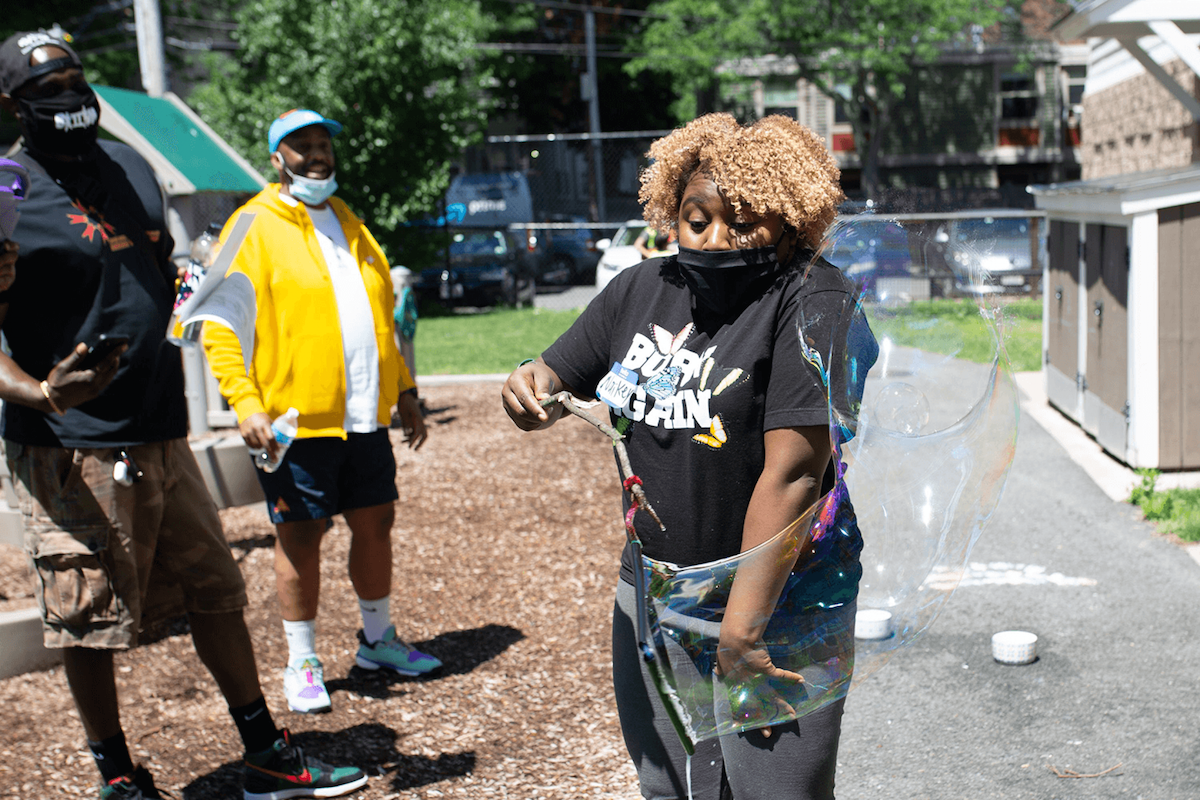
The purpose of the Replenish ARG was to encourage CYP staff to think outside the box and give them ideas they could do with their young people outside. By expanding their knowledge about water through gameplay, they had space to go in directions that may never have been thought of before.
The unique summer staff training event was the culmination of weeks-long alternate reality game planning to encourage people to work collaboratively, make use of their science knowledge, and learn the kind of guided inquiry at the heart of LSTEAM’s core values.
Set in a future world where summers are hotter because of climate change, the Replenish ARG provided clues and puzzles via online videos and a variety of STEAM activities to help CYP staff come up with new ideas for their summer youth programs. This staff training (as a game) aimed to get people thinking outside of their smaller, sometimes more insular, worlds and into new, interdisciplinary modes.
Making an Alternate Reality
ARGs use real life as a stage to tell an interactive story. The first puzzle in any ARG is what is referred to as “The Rabbit Hole”. Like Alice in Wonderland, this is the first step into the fictional universe of the game. The Replenish ARG rabbit hole was a fake BBC new article about the climate. CYP staff uncovered the rest of the Replenish narrative scattered across different activity areas outside of the Frisoli Youth Center in Cambridge, MA.
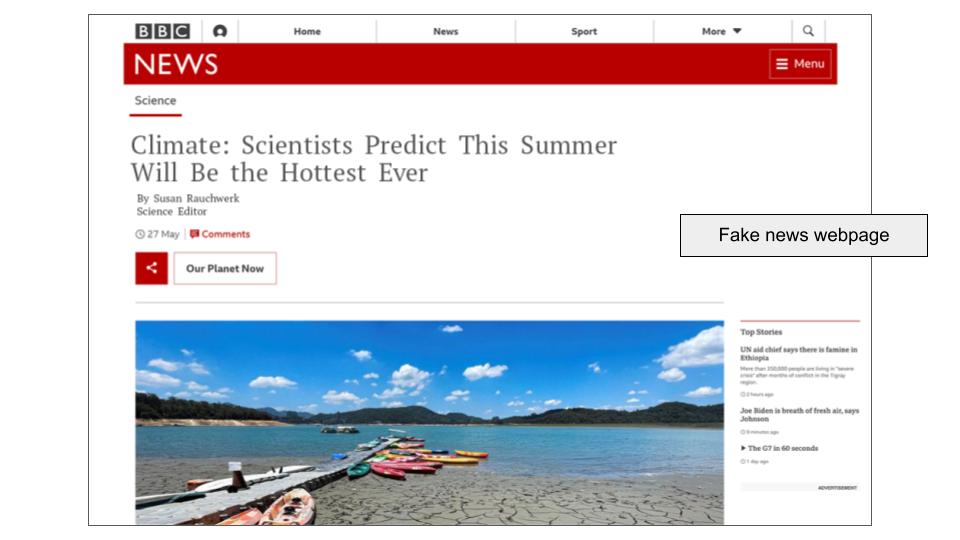
During the event, groups were divided by CYP program (approximately 6-10 people per group) and they rotated through five activities, then everyone got together to play a water cycle simulation activity. For each round, the groups met a Lesley STEAM member at their respective project tables to complete a task that also included a QR code that, when scanned, showed one of five posters with a missing word they had to correctly guess before moving on to the next project. Once they completed all of the projects (and got all of the words) they solved the puzzle by rearranging the missing words to complete a slogan.
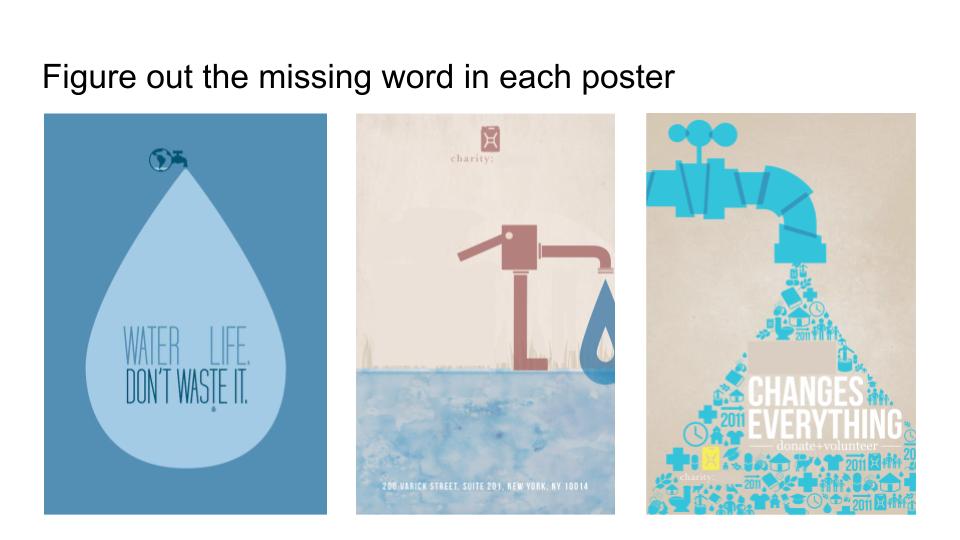
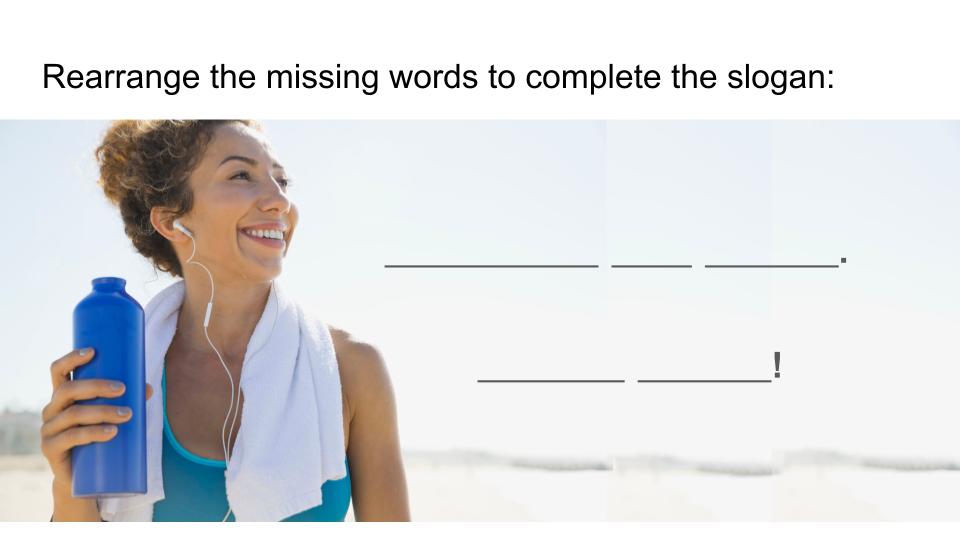
Each group also got a ring to be used in a ring toss, to win the prize: a magic water bottle.
Stay tuned for more discussion about the ARG stations and activities.
The gathering was funded as part of biotech company Biogen’s STAR Initiative (science teacher support, access and resources).
